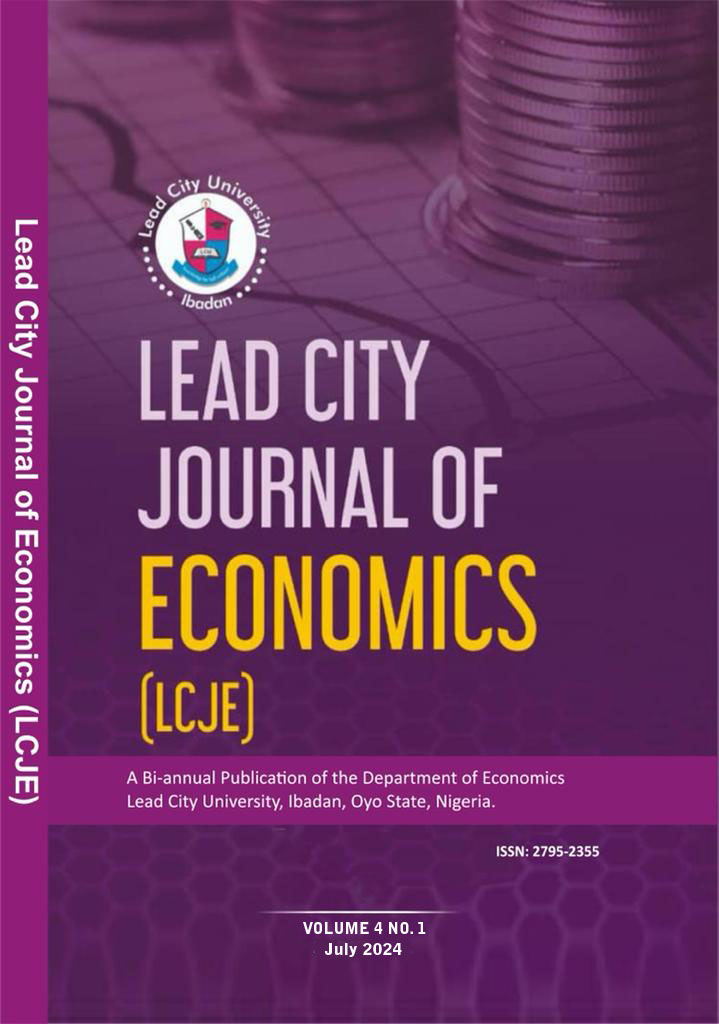Financial Sector Development and Health Outcomes in Nigeria: A Causality Approach
Keywords:
Financial sector development, health outcomes, life expectancy, under-five mortality, Granger causality, NigeriaAbstract
This study investigates the causal relationship between financial sector development
and health outcomes in Nigeria from 1985 to 2022, employing a Granger causality
approach. The analysis focuses on key variables, including life expectancy (LEXP),
under-five mortality (UN5M), liquidity ratio (LR), domestic credit to the private sector
(DCPS), monetary policy rate (MPR), and loan-to-deposit ratio (LDR). The results
reveal a unidirectional causal relationship, where under-five mortality Granger
causes life expectancy, but not vice versa. This underscores the critical role of targeted
child survival interventions in achieving long-term improvements in population
health. Furthermore, short-term fluctuations in key financial indicators, liquidity
ratio, domestic credit, and monetary policy rate, do not exhibit a significant causal
effect on under-five mortality, suggesting that transient financial measures are
insufficient to address health outcomes. A pivotal finding is the significant Granger
causality from under-five mortality to government development expenditure,
indicating that rising child mortality rates precipitate increased public spending. This
reactive pattern highlights the necessity for proactive, rather than responsive fiscal
policy actions. As a result, the study recommends sustained investment in child
healthcare, flexible and adaptive health crisis responses, long-term strategic
planning, and robust cross-sectoral collaboration to effectively address the
interconnected challenges within Nigeria’s health and economic sectors

